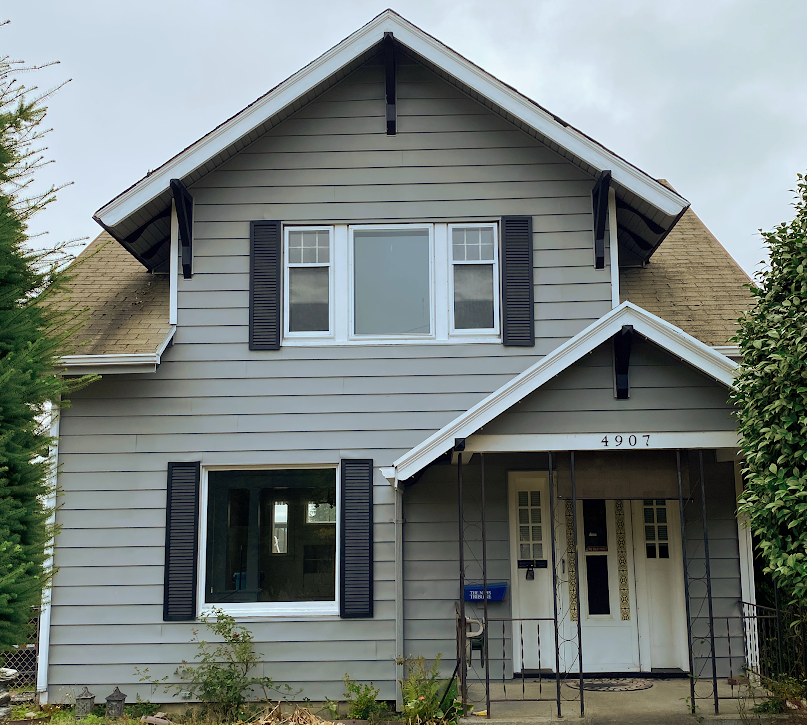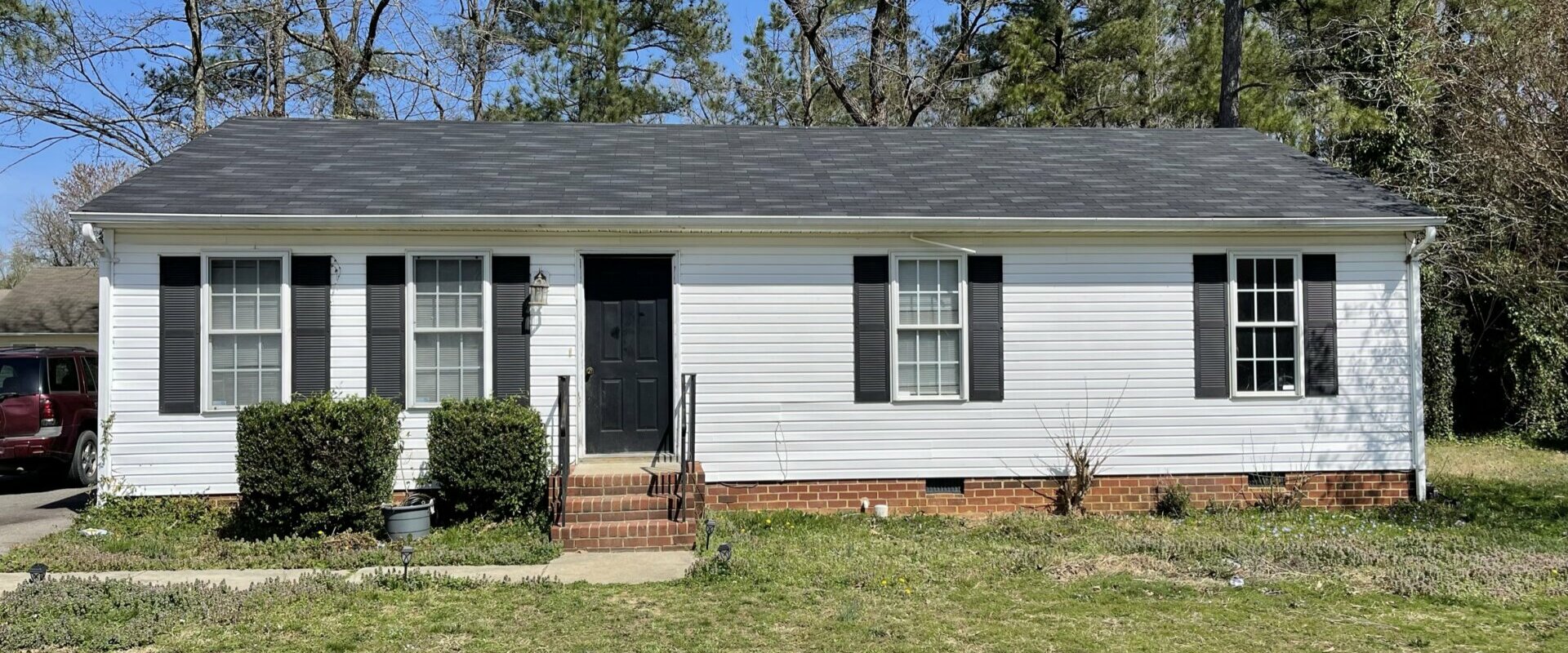How To Sell A Rental In Virginia
Table of Contents
1. Reasons To Sell Your Investment Property In Virginia
2. Steps To Take When Selling A Rental Property In Virginia
3. How To Sell A Rental Property With Tenants Living In It In Virginia
4. Strategies For Making The Sale Of A Tenanted Investment Property Smooth In Virginia
5. What Rights Do Tenants Have When Landlord Sells Property In Virginia?
6. How Do I Avoid Capital Gains Tax On Real Estate In Virginia?
Reasons To Sell Your Investment Property In Virginia

Selling an investment property in Virginia can be an immensely rewarding experience, and it’s important to understand the reasons why you may want to pursue this course of action. For starters, the real estate market in Virginia is known for its stability and potential for high ROI.
This means that investors can rest assured that their investments won’t be subject to drastic price drops or other negative impacts from external factors like economic downturns. Additionally, the state has some of the most attractive tax benefits in the country, which makes it a great choice for those looking to maximize profits.
Finally, Virginia has a large population and plenty of potential buyers, making it easier to find a buyer who is willing to pay top dollar for your rental property. All of these factors make Virginia an ideal place for investors looking to purchase or sell an investment property.
Tax Implications Of Selling A Rental Property In Virginia
In Virginia, there are certain tax consequences that must be thought through when selling a rental property. It is important to know the Virginia capital gains tax rules and laws, as well as any deductions or exemptions that can be used.
When someone sells a leased property, the gain is taxed at the same rate as regular income, and the seller must pay taxes based on how they file their taxes. Also, sellers may be able to get tax breaks for fixes they made and the property’s value going down.
Also, the seller may be able to get cheaper long-term capital gains rates if they have owned the rental property for more than a year. Also, it’s important to remember that buyers have to report the money they got from the sale on their federal income tax return, even if they don’t owe taxes on it.
If you want to get the most money back when you sell a rental property in Virginia, you need to make sure you know all the tax rules and laws that apply.
When To Sell A Rental Property In Virginia
Selling a rental property in Virginia can be a great way to get the most money back, but you need to act quickly to take advantage of this chance. Know the market in your area and when the best time is to put your house on the market.
You can get the most out of selling a rental property in Virginia if you know what time of year to do it and what kind of people are most likely to be interested. Before you put your house on the market, you should also think about how the economy is doing and whether there are any local rules that might affect its value.
Finding out about the current prices of homes in your area and how rental rates have changed over the past few months or years can help you decide when to sell your home. If you sell your Virginia leased property at the right time, you can get the best return on your investment.
Steps To Take When Selling A Rental Property In Virginia
When selling a rental property in Virginia, there are several key steps to take to maximize return on investment (ROI). First, familiarize yourself with the legal requirements and regulations related to renting a property in the state.

Find out what the tenant’s rights are and what the landlord’s duties are so that you can protect yourself and the people who might buy your property. Next, make sure that all repairs and improvements that need to be done have been done before putting the house on the market.
This will help make it more valuable and appealing to people who might want to buy it. To set a fair price for your renting property, you should also look into similar homes that have recently sold in the area.
Lastly, advertise your item in a number of different ways, such as online or in local newspapers, so that you can reach a lot of people who might be interested in buying. When you sell a rental property in Virginia, these steps will help you get the most money back from the sale.
Avoiding Taxation When Selling A Rental Property In Virginia
When selling a rental property in Virginia, knowing the potential taxation implications is important. The taxation process can be complex and difficult to navigate, so understanding how to file taxes when selling a rental property in Virginia properly is essential for maximizing ROI on the sale.
It’s important to be aware of the differences between capital gains taxes and ordinary income taxes, as capital gains are taxed differently depending on short-term or long-term investments. Additionally, knowing what deductions you are eligible for can help you reduce your tax burden when selling a rental property in Virginia.
For example, if you have held the rental property for at least one year, you may qualify for a depreciation deduction, which could lower your taxable capital gain. Additionally, state and local credits may be available that allow you to reduce your taxes further when selling a rental property in Virginia.
Finally, it is important to consult with an experienced accountant or tax attorney who understands the specific laws and regulations surrounding taxation when selling a rental property in Virginia in order to ensure that you take full advantage of all applicable tax credits while avoiding any potential pitfalls.
Navigating The Sale Of A Rented Home In Virginia
Virginia’s rental home sales method can be hard to understand. There are a few things you should think about and steps you should take to get the best return on investment (ROI) from selling a rental property.
First, it’s important to know the rules and laws in Virginia that apply to renting and selling a house. The next step is study. Knowing the market, figuring out the best time of year to sell, and getting a correct appraisal of the property are all important parts of a successful sale.
Having trustworthy professionals on your side, like real estate managers or lawyers, can also help you get the most money for your home. Lastly, don’t forget about marketing. Putting professional pictures and virtual tours of your rental property online can help you get more people interested in it.
These tips will help you get the most money back when you sell your Virginia rental home.
How To Sell A Rental Property With Tenants Living In It In Virginia

It can be hard to sell a rental property in Virginia that already has renters, but it doesn’t have to be. To be successful, you need to know how to get the most out of your spending (ROI).
Before you put the house on the market, you should make sure you know the rules and laws in Virginia about renting and selling homes. You will need to open a trust account to keep the money from sales separate from the money you use to run your business.
Once you know the rules and laws inside and out, you can put the house on the market. It’s important to find a real estate agent who knows the Virginia renting market and can help you get the best return on your investment (ROI) by negotiating with buyers on your behalf.
You should also promote your home aggressively, using a variety of tools, such as print ads, online ads, open houses, and word-of-mouth. Lastly, don’t forget to fix up or improve the house before you put it on the market. This will make it more appealing to buyers and raise its value.
You can sell a rental property in Virginia with renters living in it and still make the most money if you know what you’re doing and put in the work.
Challenges Of Selling An Occupied Home In Virginia
In Virginia, it can be hard to sell a renting property that is already rented out. When you’re trying to sell a rental property, there are a lot of things that could go wrong. You need to know how to best list the property, how to deal with difficult tenants, and the local rules that govern rental properties.
Most of the time, the hardest thing for sellers is getting renters to agree on a convenient time to leave the property. It’s important to know the rules and laws in your state about things like tenant rights, eviction notice times, and other things.
As a seller, you should also know about the zoning rules in your area, as they may affect how interested potential buyers are in your home. Lastly, it is very important that all fees are paid before the sale closes. This is because many rental agreements require leasing fees to be paid.
To get the best return on investment (ROI) when selling a rental property in Virginia, you need to carefully think about these issues and use smart price and marketing strategies.
Options For Selling An Investment Property With Tenants In It In Virginia
In Virginia, owners who want to sell an investment property with renters can do a few different things. One way is to let the renter stay and give the new owner the lease.
As long as the renter is good and pays their rent on time, this choice is good for everyone. This also keeps the seller from losing money on rent while they wait for new renters to move in.
If you want the renter to leave early, you could also offer them money, like a month or two of free rent. This could be helpful if repairs need to be done that leave rooms empty while the work is done.
Lastly, some investors choose to kick out renters who are late on their rent or don’t follow the landlord’s rules about renting. It’s important to know the state rules about evictions in this case; for example, in Virginia, landlords have to give 30 days’ notice before going to court to evict a tenant.
When investors sell rentals in Virginia, knowing these choices can help them get the best return on their money.
Strategies For Making The Sale Of A Tenanted Investment Property Smooth In Virginia

The sale of a tenanted investment property in Virginia can be a complex process, but with the right strategies, it can be made smooth and successful. The first step is to ensure that all paperwork associated with the rental property is up to date, including rental agreements, tenant contact information, maintenance records, and any other relevant documents.
You should also look at the property’s state to see if any repairs need to be made before you put it on the market. It’s important to set a reasonable price for the home by looking at recent market trends and other homes for sale in the area.
Also, make sure that your marketing plan is specifically designed to reach people who might be interested in buying this kind of business property. Once you’ve found a buyer, it’s important to make sure they understand all the terms of the deal and keep in touch with both the tenant and the potential buyer throughout the whole process.
When you sell a rental property in Virginia that is rented out, these tips can help you get the best return on your investment.
Understanding The Duties Of An Owner When Selling A Tenanted Investment Home In Virginia
It’s important for owners of rental properties in Virginia to know what their duties and obligations are when they want to sell the property. There are a few things that need to be done before the house is put on the market to make sure that everyone is safe.
First, owners should learn about the landlord-tenant rules in their area so they know what their rights and responsibilities are as owners. This includes letting tenants know they have the right to give notice before leaving, setting clear rules for rent payments and security deposits, and being aware of any rules or limits that apply to selling rental properties.
Also, owners should check their current leases and contracts to make sure they are still legal and make note of any changes that may need to be made before the sale goes through. Lastly, people who own investment homes in Virginia that are rented out should check with the appropriate government bodies or agencies to see if there are any rules about helping tenants move or providing support services. This will help them get the most money back from the sale.
How To Prepare Your Tenants For The Sale Of Your Investment Property In Virginia
When you decide to sell your rental property in Virginia, it is important to prepare your tenants for the sale. As the owner of the property, you should communicate with your tenants to ensure a smooth transition and maximize return on investment (ROI).
Start by giving them plenty of notice that they will need to find a new place to live soon. Make sure they understand that as their landlord, you have an obligation to sell the property and that it is nothing personal against them.
Provide them with a list of potential resources for finding another place to live, such as local real estate agents or rental websites. Let them know how long they have before they must move out and when their security deposit will be returned.
Be sure to answer any questions or concerns they may have about the sale of the property and provide information about what the new owners may require from them. Lastly, stay in communication with your tenants throughout this process and keep them informed about any changes that may occur during the sale, as this can help create a positive relationship moving forward.
What Are The Benefits And Downsides To Selling An Occupied Investment Home In Virginia
There are pros and cons to selling a rented property in Virginia that are unique to that state. Before jumping, it’s important to know what the law says, like the rights of both the landlord and the renter.
Before selling an occupied rental home in Virginia, it’s also a good idea to talk to a tax expert. When selling an occupied investment home in Virginia, negotiating with potential buyers can also be helpful. There are some tips that can help you get the most out of your negotiations and improve your return on investment (ROI).
Unfortunately, a lot of people in Virginia make mistakes when they try to sell their rental property. For example, they might not get the house ready for sale or they might not know how the sale will affect their taxes. It is important to take the time to learn about your choices and understand all the steps that need to be taken for a sale to go smoothly and get the most out of your investment.
What Rights Do Tenants Have When Landlord Sells Property In Virginia?
Tenants in Virginia have certain rights if their landlord decides to sell the house they are living in. The Virginia Residential owner and Tenant Act says that the owner has to respect the tenant’s right to quiet enjoyment during the whole sales process.
Tenants have the right to be told in writing by their landlord that they want to sell at least 30 days before any changes are made to the property. Also, tenants don’t have to leave during showings as long as they are given written notice 24 hours in advance and a chance to plan a showing at a time that works for everyone.
Tenants can’t be kicked out just because the property is being sold or transferred as long as they pay their rent on time and meet all of their other lease responsibilities. Lastly, Virginia renters may need to sign a deed of trust before the closing day. This lets them get money from the new owner if their security deposit isn’t returned within 45 days of moving out.
To get the best return on investment (ROI) when selling rental homes in Virginia, you need to follow these tenant rights, know the market, and use good marketing techniques.
How Do I Avoid Capital Gains Tax On Real Estate In Virginia?

When it comes to selling a rental property in Virginia, understanding how to avoid capital gains tax is essential for maximizing your return on investment (ROI). In Virginia, capital gains tax is calculated based on the difference between the amount you paid for the property and what it was sold for.
There are ways to lower or even get rid of this tax, which is good news. One way is to keep the property for more than a year before selling it. If you can show that you kept the property for more than a year, you can get lower capital gains taxes.
You could also invest in a 1031 exchange, which lets buyers put off paying capital gains taxes by trading in one investment property for another instead of cashing out. You can also subtract some costs, like real estate agent fees and closing costs, from your total gain when you sell your rental property.
Investors can successfully sell their rental properties in Virginia without having to pay too much in capital gains taxes if they understand these tactics and use them in the right way.
Do I Pay Taxes If I Sell Property In Virginia?
If you sell a house in Virginia, you will have to pay taxes. If you want to get the most out of your investment when you sell a rental property in Virginia, you should think about the tax consequences as part of your total plan.
When you sell a rental property in Virginia, you may have to pay capital gains taxes, which can have a big effect on how much money you get from the sale. If you want to be ready for this possibility, learn about both federal and state tax rules.
Working with an experienced real estate lawyer is also important. They can help make sure that all tax obligations are taken into account during any deal. You can get the best return on investment (ROI) when you sell a rental property in Virginia if you plan and get ready ahead of time.
At What Point Should You Sell A Rental Property?
To get the best return on investment (ROI), you should think about when the best time is to sell a rented property. Selling a rented property in Virginia can be very profitable, but it depends on where it is, how the market is doing, and other things.
You should know when to sell a rental property so that you get the most out of your money. There are a few things that affect when the best time is to sell a rented property in Virginia.
First, you should think about how the Virginia home market is doing right now. When house prices are steadily going up or when a lot of new buyers enter the market, it might be a good sign that now is the time to make money from your investment.
In the same way, if you’ve had trouble renting your home or if your current renters no longer want to live there, this could also be a sign that it’s time to put it on the market. In addition to looking at how the Virginia housing market is doing right now, you should also think about any changes you’ve made to the property since you bought it and any new taxes or rules that could affect your ability to make money.
If you think about these things and choose the right time to list your home for sale, you can get the best return on investment and make sure that your Virginia rental properties sell quickly.
Additional Resources To Help Virginia Homeowners
Get Your Cash Offer Now! 💰
We buy houses in ANY CONDITION in Richmond. There are no commissions or fees and no obligation whatsoever. Start below by giving us a bit of information about your property…

